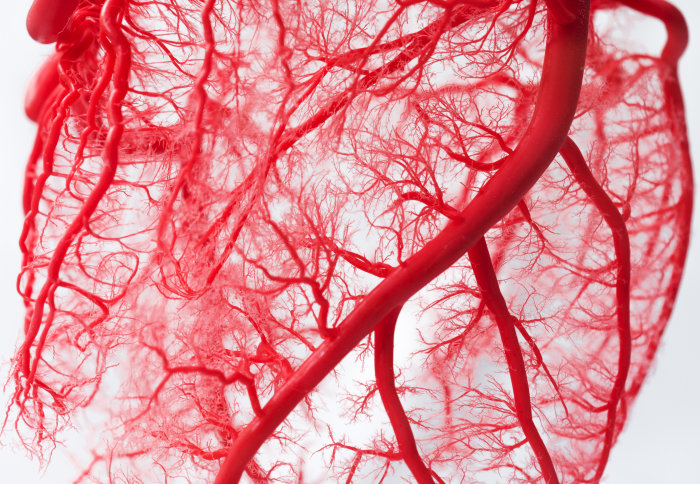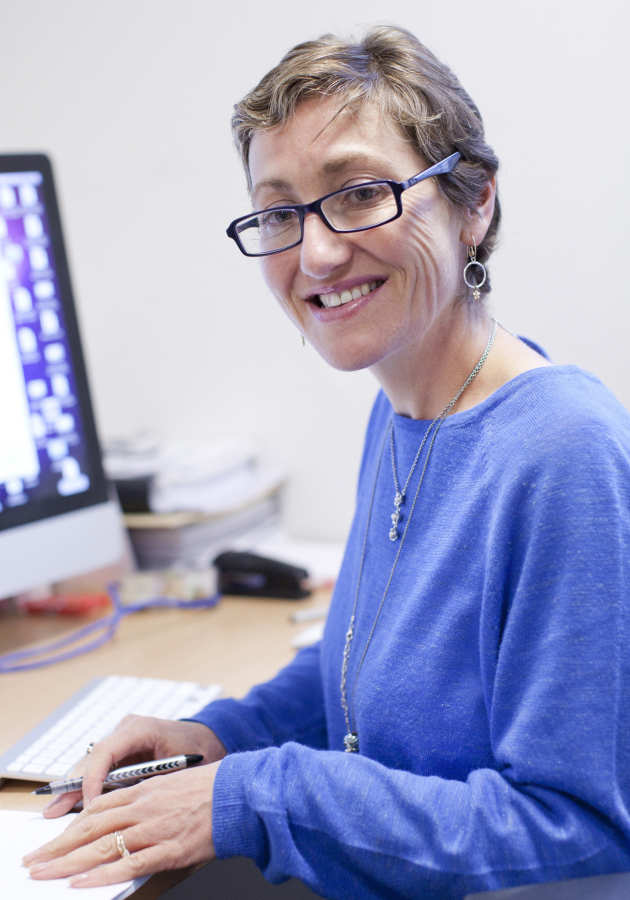Spotlight on Vascular Disease with Professor Jane Mitchell

In Vascular Disease Awareness Month we wanted to shine a light on the research at the National Heart and Lung Institute tackling vascular disease.
Vascular Disease Awareness month is run by the Circulation Foundation, a UK vascular charity dedicated to vascular health, whose mission is to promote awareness into vascular conditions and to support vital research. I took the opportunity to sit down with Professor Jane Mitchell to discuss her team’s work in this area and what is on the horizon.
Why is it important to research the vascular system?
Every single organ and tissue in our body requires a blood supply; that’s true for the heart, lungs, eyes, brain, skin – everywhere. Also in cancer, for example, tumours need a blood supply which is why targeting vessel growth is an important therapeutic area for anticancer drugs. This makes understanding the vascular system a critical priority for biomedical research to better understand every aspect of our health and the diseases which challenge it.
What are you researching at the moment?
We have a number of research projects going on, so I can give you details of a few to illustrate the breadth of what we do and the importance of blood vessels in disease and drug development. Firstly, I work with Dr Nicholas Kirkby to study how an enzyme called cyclooxygenase functions in the vascular system. Cyclooxygenase is present throughout the body, but is particularly important in blood vessels and in the kidney where it protects the cardiovascular system. However, cyclooxygenase is also present in inflammation where it is the target for common pain medications called nonsteroidal anti-inflammatory drugs such as ibuprofen. The enzymes role in protecting the cardiovascular system is why drugs like ibuprofen are associated with increased risk of heart attacks, we are trying to understand why.
"I believe that one day all drugs will be designed as targeted therapies and hope that within the next 10 years those drugs with the most serious side effects, which include many cancer therapies, will be modified for targeted delivery" Professor Jane Mitchell
Secondly, with Dr Blerina Ahmetaj-Shala, Isra Marei and Ryota Kawai in my team, we are also finding ways in which we can grow vascular cells from blood stem cells. We first worked on this technique with the help of Professor Anna Randi and have had success with a patent recently awarded in Europe and the US, but there is much more to do. We want to use vascular cells grown from blood stem cells to test drug action. This will allow us to see how a drug will work on a person’s own vascular cells grown from an individual’s stem cells – this is an approach known as personalised medicine. This technique allows for new drugs to be tested on vascular cells from healthy people of all ages as well as on people with particular diseases associated with ageing such as dementia. We know that vascular cells change as we age. We can also study responses in vascular cells from a person with rare conditions or with genetic mutations before having to give the patient themselves any trial drugs. Vascular cells grown in this way are also important to tissue or organ regeneration programmes as all organs need a vascular system – growing them from a patient’s own cells prevents rejection.
Thirdly, I work with Dr Nura Mohamed in my team and with Professor Paul Lickiss and Dr Rob Davis in Chemistry at Imperial College London to apply nanomedicine approaches to common cardiovascular drugs so that they can be delivered specifically to diseased blood vessels. We believe that this approach is particularly important for patients with life threatening conditions where the side effects of drugs limit the amount of drug that can be given. Using nanomedicine approaches we aim to package the successful drugs that we already have in parcels to deliver them to the diseased area, this involves engineering the parcel to travel to, and be retained in, only the area of disease. The challenges in this area are to overcome toxicity and to find the right strategy to get the parcel to the diseased area. The parcel itself is like teabag so the medicine leaches out once it is at the target area. We are looking at this application in a rare but very serious disease that I work on with Dr John Wort at the Royal Brompton Hospital called pulmonary arterial hypertension.
What do you hope to find out with your research?
I hope to find information that directly or indirectly improves human health.
What are the next big challenges to be overcome in this area?
In my view as a pharmacologist; targeted drug delivery is the future. By finding strategies to get drugs only to the area of disease we will improve the effectiveness of the drugs we already have, as well as future therapies. As a consequence, lower concentrations and less frequent dosing will be required and hopefully side effects will be reduced. Understanding the vasculature is critical to overcoming the challenges in this area because to target drugs it is first necessary for the drugs to home into and pass through the blood vessel in order to get to the area of disease. I believe that one day all drugs will be designed as targeted therapies and hope that within the next 10 years those drugs with the most serious side effects, which include many cancer therapies, will be modified for targeted delivery. In the future I think that any drug taken for chronic conditions will be engineered to bypass systems they are not meant to be acting on – this is already done in simple ways with the coating of tablets to protect your stomach.
What do you enjoy about working at the NHLI?
The best thing about working at NHLI and Imperial is the ease of collaboration and the wealth of expertise. I have collaborated with Paul Lickiss and Rob Davies in Chemistry, Elizabeth Want in Surgery and Cancer, Anna Randi, Sian Harding, Julia Gorelik, Martin Wilkins and John Wort within NHLI. Then outside of Imperial I have worked with Tim Warner from the Blizard Institute, and the Qatar Foundation through Nora Mohammed and Isra Marei – and lots of external and international collaborations
Do you have any exciting projects on the horizon that you can share with us?
We have a new project which will investigate an entirely novel area of research where we will investigate how vessels and airways communicate with each other in the lung; this work is high risk, but high reward with implications for our understanding of diseases such as asthma, chronic obstructive pulmonary disease (COPD), pulmonary arterial hypertension and interstitial lung disease, we are excited to see what comes out of that. There is a close association of the airways and the vascular system, but we don’t know how, or indeed if, they interact with regards inflammation. For instance in asthma sufferers the airways are really inflamed – but is the pulmonary artery attached to it also inflamed? Is inflammation going to artery or is it not spreading – if it is not spreading then there must be an active check point that prevents inflammation spreading. These would be novel targets for drugs.
What other areas of research does your work tie into?
As blood vessels are found throughout the body my work ties into to all aspects of biomedical research including lungs, brain, gastrointestinal, etc.
Are there any new advances coming due to new technology?
Yes definitely – we are now well and truly in the digital age. The affordability and accessibility of devices means that they are now mainstream. A simple wearable device can track heart rate and other biometric information 24/7 and send data directly to your smart phone. At a routine medical exam recently, a family member was found to have high blood pressure and low heart rate. They bought a wearable device to measure heart rate continuously and monitored their own blood pressure at home twice a day. Two weeks later their data showed no cause for concern and the doctor decided against prescribing medication. Before the digital age became mainstream – the doctor may well have prescribed drugs. This ties in with my drive towards personalised and targeted medicine, and reducing side effects from higher doses and use of drugs.
What is your favourite aspect of your research?
Testing ideas, working with trainees, and collaborating with colleagues.
Who inspires you now? Were then any influential figures who inspired you to become a scientist?
Workwise my students and colleagues inspire me. I was lucky as a PhD student because my supervisor was a very important figure in Pharmacology, John Vane – he discovered how aspirin works! Home-wise my family, especially my children inspire me. My grandfather was a coal miner but an amateur gardener in his spare time. He approached his gardening very scientifically – he inspired me as a child.
Article text (excluding photos or graphics) © Imperial College London.
Photos and graphics subject to third party copyright used with permission or © Imperial College London.
Reporter
Ms Helen Johnson
Communications Division